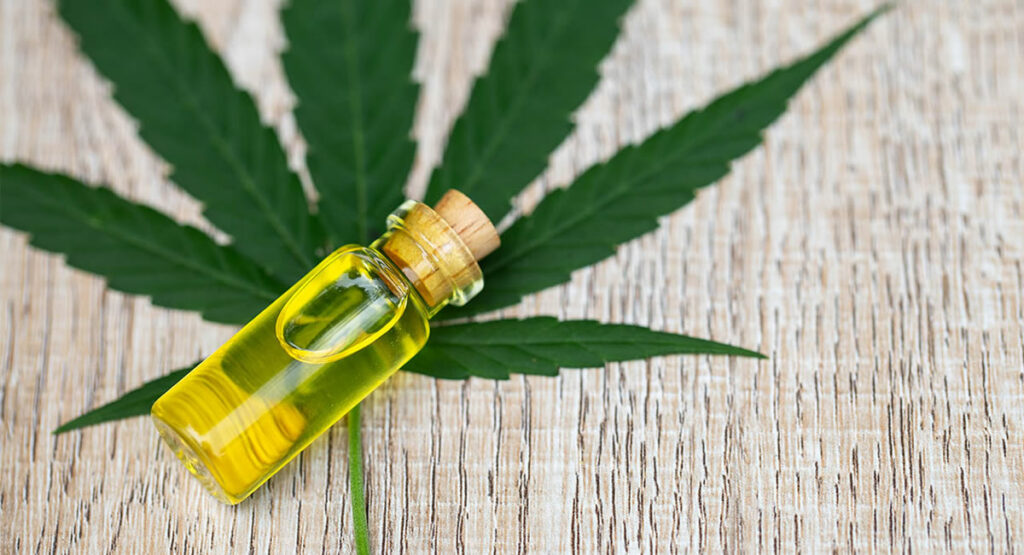CBD is a trending natural remedy used for issues like anxiety, pain, and insomnia. Here we cover how CBD works, its legal status, potential health benefits and risks, how to use CBD, and what we still don’t know about cannabidiol.
What is CBD and How Does it Work?
CBD, short for cannabidiol, is one of over 100 cannabinoids found in the cannabis plant. CBD is non-intoxicating, meaning it does not cause the high associated with cannabis.
Research indicates CBD interacts with receptors in the endocannabinoid system (ECS), which regulates functions like mood, pain perception, inflammation, and more. However, exactly how CBD elicits its effects is still not fully understood.
Both marijuana and hemp varieties of cannabis contain CBD. Hemp-derived CBD with less than 0.3% THC is federally legal in the U.S. following the 2018 Farm Bill. However, the legal status of CBD remains complex and varies by state.
Potential Health Benefits of Using CBD
While research is still emerging, studies indicate CBD may help:
- Chronic pain – Studies show efficacy against arthritis, neuropathies, fibromyalgia, and more.
- Anxiety and depression – Evidence suggests CBD may lower symptoms from stress-related disorders.
- Epilepsy – CBD is shown to reduce seizures in disorders like Dravet syndrome.
- Cancer side effect management – May help nausea, pain, and sleep issues related to cancer.
- Neuroprotection – Early research shows promise for conditions like Alzheimer’s and multiple sclerosis.
- Heart health – Studies indicate CBD may benefit heart health in various ways.
However, large scale clinical studies in humans are still needed to confirm CBD’s therapeutic potential for these and other health issues. Talk to your doctor before using CBD.
Possible Side Effects and Safety Concerns
Minor side effects associated with CBD include diarrhea, fatigue, dry mouth, and changes in appetite or weight.
CBD may also interact with certain medications. Speak with your doctor first if taking any medications to discuss possible drug interactions with CBD.
There are still several unknowns around CBD’s effects with long term use. Potential risks and side effects require more research, including its impact on hormone production, liver health, and mood disorders.
Pregnant/nursing women, children under 18, and individuals with certain medical conditions should avoid CBD unless approved by a physician. Always start with low CBD doses first.
Is CBD Legal?
Federal law legalized hemp-derived CBD with less than 0.3% THC. However, the legal status of CBD is complex. State laws vary greatly, and many states restrict CBD use. There are also differences in marijuana-derived versus hemp-derived CBD legality at the federal level. Check your local laws before buying CBD.
Additionally, the FDA does not currently approve CBD products except for one prescription drug for epilepsy, Epidiolex. Lack of regulation means some CBD product labels may be inaccurate.
Ways to Take CBD
There are several methods for taking CBD based on your preferences:
- Oils – CBD oils placed under the tongue provide fast absorption. Easy to adjust dosing.
- Capsules/Edibles – Ingesting CBD capsules or edibles is slower acting but effects can last hours. Dosing is easier.
- Topicals – CBD creams, balms and lotions are rubbed into the skin for localized relief. Great for pain.
- Vaping – Inhaling vaporized CBD oil via vape pen gives near instant effects. But vaping has known risks.
- Sprays – CBD oral sprays are another quick-absorbing option better tasting than oils. Convenient to dose.
Combining multiple CBD consumption methods can be beneficial for multifaceted relief.
What is the Recommended CBD Dosage?
There are no official dosage guidelines for CBD. However, studies indicate doses up to 1500mg daily are generally well tolerated. Start with the lowest dose possible and gradually increase over time, stopping or lowering if you experience side effects. Various factors like your genetics, metabolism, and concentration of CBD in a product impact ideal dosage.
Things We Still Don’t Know About CBD
While research on CBD is promising for many applications, there are still several unknowns, including:
- How the hundreds of other compounds in cannabis interact with CBD
- The effectiveness of nanoemulsified and lipid-encapsulated CBD that claim higher bioavailability
- If isolated CBD is less effective therapeutically than full spectrum extracts
- Long term effects and safety with chronic CBD administration
- Precise mechanisms of action of CBD in the body
- Optimal doses to treat different conditions and individual variability
More high quality human clinical trials are needed to better understand CBD’s benefits and potential uses.
The Bottom Line on CBD
Early research indicates CBD may provide natural relief for an array of health issues. However, effectiveness varies by individual. Work closely with your doctor to decide if CBD is appropriate for your needs and to find the optimal dosage that is right for you. Avoid buying CBD from questionable sources and properly vet brands and lab test results. When used responsibly, CBD holds promise as a health supplement.
- UK Announces Mandatory Vape Tax and Duty Stamps from 2027 - February 10, 2026
- Sri Lanka Travel 2026: Total Ban on Cigarettes & Vapes - February 5, 2026
- NY Tax Proposal: Hochul Targets ZYN with 75% Levy - January 29, 2026


